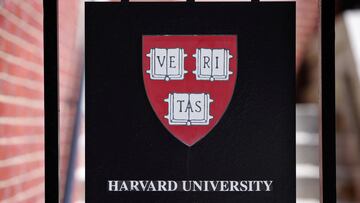Why is Harvard University back to requiring admissions tests?
The prestigious Ivy League university joins a number of its sister institutions in bringing back the tests after a pandemic-related hiatus.

Harvard University’s recent announcement that it will require standardised testing for admissions starting with the fall 2025 applicant pool has reignited the debate over the role of these tests in college admissions. The decision comes after several years of a test-optional policy implemented during the covid-19 pandemic, in lock-step with other insitutions.
“Students applying to Harvard College for fall 2025 admission will be required to submit standardized test scores,” Harvard’s Faculty of Arts and Sciences announced Thursday. “This new policy will be applied to the Class of 2029 admissions cycle and will be formally assessed at regular intervals.”
Harvard, along with other prestigious institutions like Yale and Dartmouth, argues that standardized tests provide valuable data for admissions officers and can even benefit disadvantaged students. However, critics maintain that these tests are biased and perpetuate socioeconomic inequalities in higher education.
“Through the admissions process, we seek to recruit students from all parts of our nation and across the world, from many walks of life, to bring with them to Harvard a universe of new questions, perspectives, and hopes for the future,” Edgerley Family, Dean of the Faculty of Arts and Sciences Hopi Hoekstra said.
Are admissions tests fair?
The ACT and SAT are seen by some as being unfair, racist and not a true determiner of a student’s academic capability. These are just some of the reasons that standardized tests have been made optional. The score on the test has become a “barrier in both a psychological and tangible way,” according to Bob Schaeffer, the executive director of Fair Test.
When a school really does use test scores as part of admission selection, then it skews towards increased inequality, as Black and lower-income students tend to have a lower average score. Historically, the standardized test have benefited wealthy white males with college-educated parents.
Related stories
This is argued. “Standardized testing, inequitable as it might be, is more equitable than any other criterion,” wrote Kathryn Paige Harden, a clinical-psychology professor at the University of Texas at Austin, in The Atlantic. “Studies suggest that the best policy might actually be to facilitate more high-school students taking the SAT, not abandon it entirely.”
Paige referred to the fact that more low-income students from Michigan attended four-year colleges after the state made the standardized test mandatory for all high school students. Her article addressed the fact that MIT, which had dropped the standardized test in 2020 and 2021, reinstated the testing requirement for 2023 fall admissions after it found more inequality in admissions without the standardized tests.

